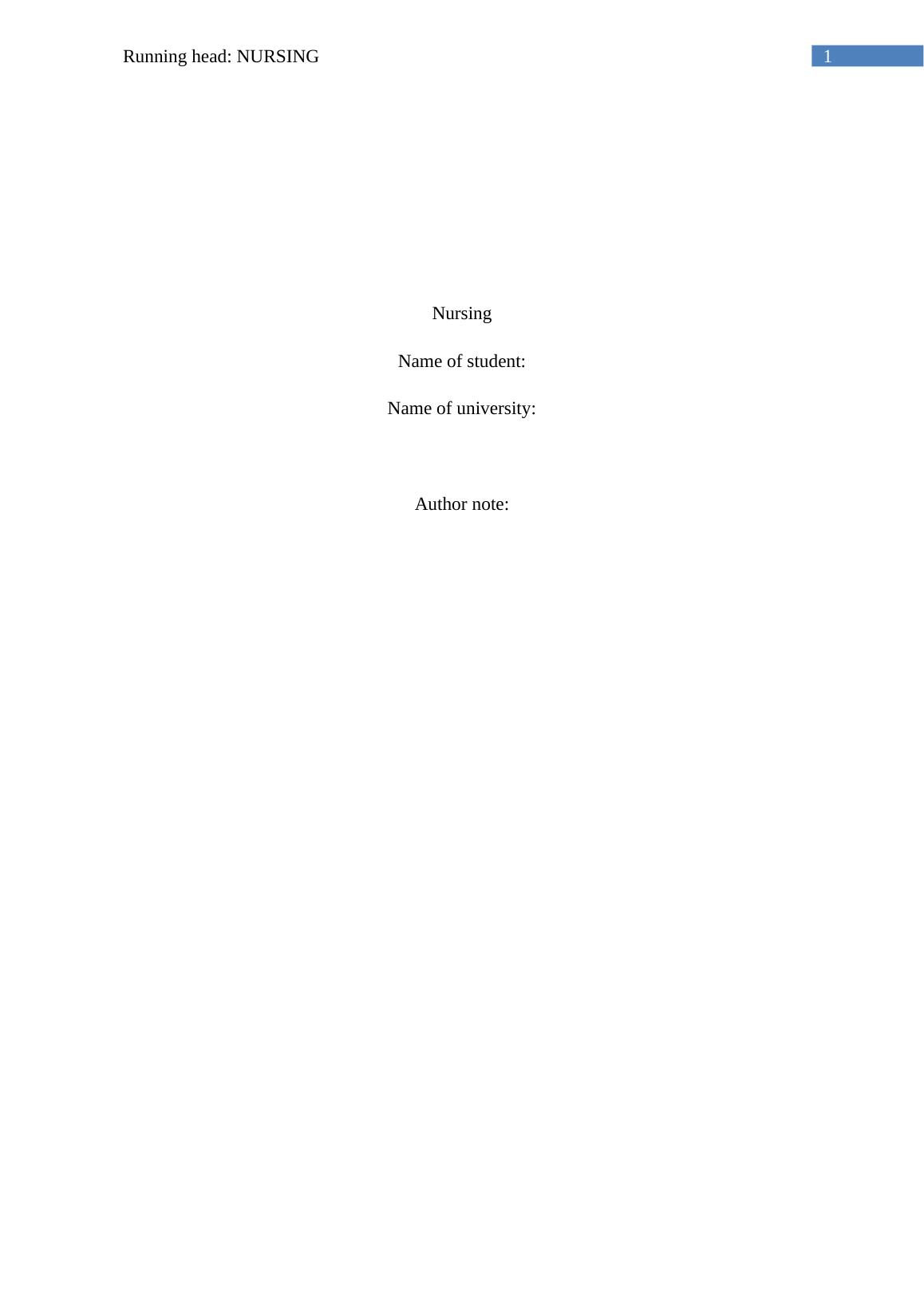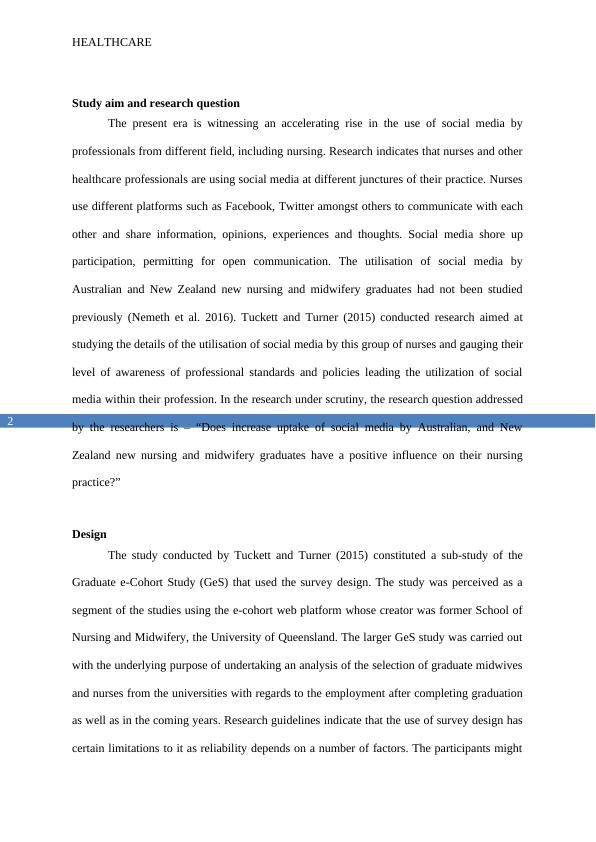Social Media in Healthcare: An Empirical Study
Added on 2020-05-11
9 Pages2182 Words158 Views
End of preview
Want to access all the pages? Upload your documents or become a member.
A Study on New Nursing and Midwifery Graduates' Use of Social Media
|10
|1989
|81
NUR131 Research Foundations for Health Practice
|4
|2344
|65
Critical Analysis of a Quantitative Cohort Study on Reasons for Entering or Leaving Nursing Profession
|8
|1987
|345
New Nursing and Midwifery Graduates' Uptake of Social Media - Study Critique
|11
|2189
|92
Do student nurses experience Imposter Phenomenon? An international comparison of Final Year Undergraduate Nursing Students readiness for registration
|8
|1750
|48
Sampling Frame and Disease Risk Assessment in Epidemiology
|6
|1345
|444



